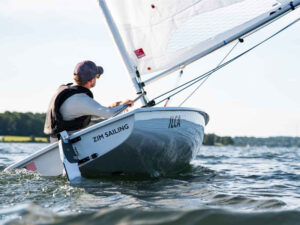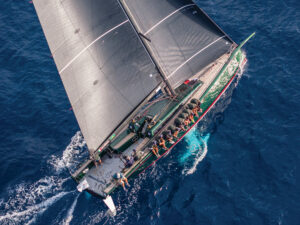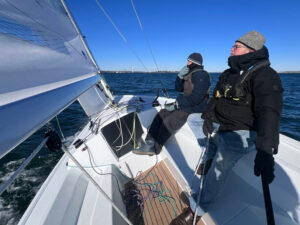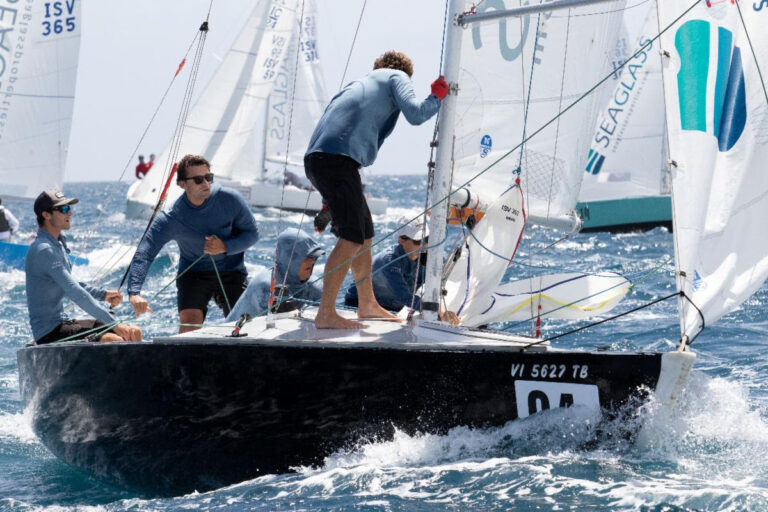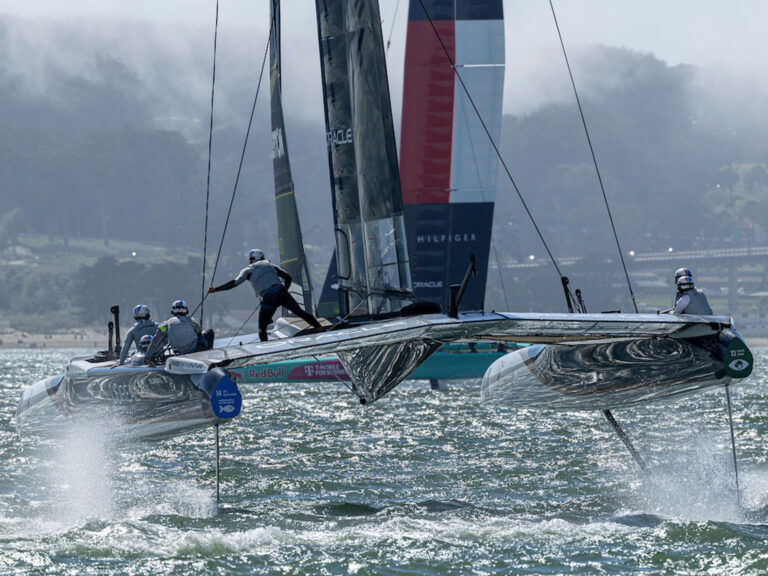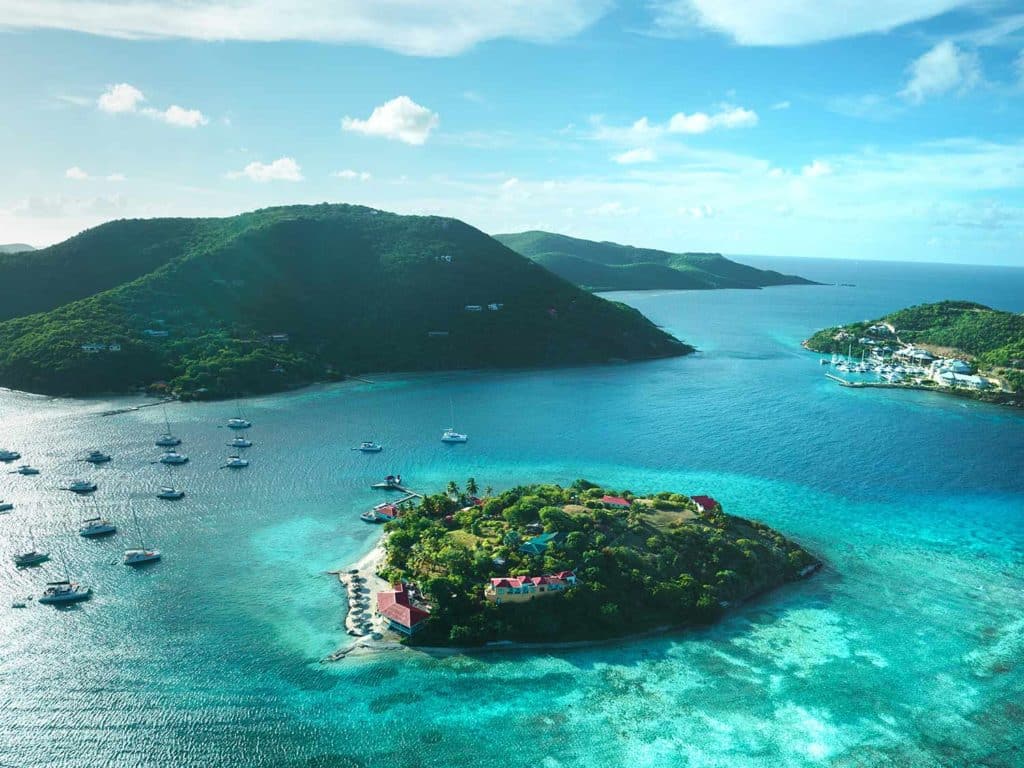
Just 16 out of 60 British Virgin Islands are inhabited, with everything from private-island resorts to nonstop beach-bar parties. That leaves 44 islands free for the exploring, from an island that looks every bit like the postcard-famous spot The Baths, only without all the people. Likewise, there’s the tiny spit of sand so pretty that a handful of Corona commercials were filmed there.
Read on to find the best islands for hikes, snorkel spots and beaches that you just might have all to yourself on your next getaway.
Fallen Jerusalem Island: Best for Photo Ops
Adore The Baths but hate crowds? This island, less than a mile south of the tip of Virgin Gorda, is home to another pile of basalt boulders that are every bit as picturesque and photo worthy as those of the iconic site. The differences: This island is smaller and has no infrastructure, including roads, so it’s much harder to access. In other words, it’s a totally private experience—like having The Baths all to yourself.
Salt Island: Best for Hiking
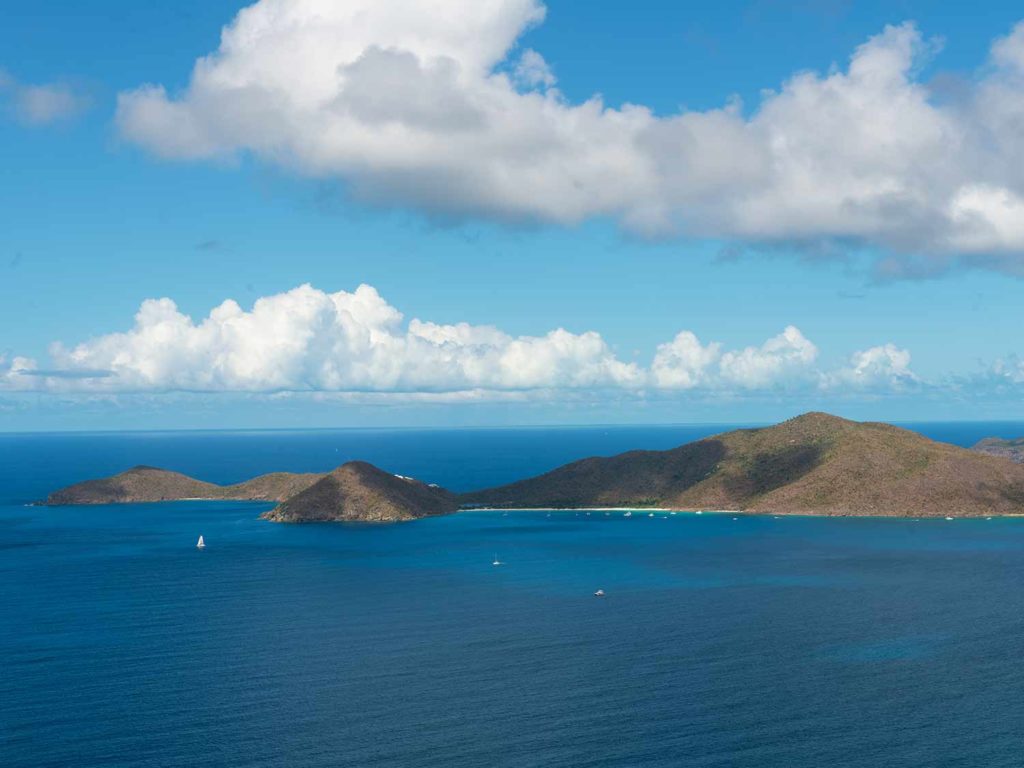
Shelters line the shore of this island most famous as the home of the folks who rescued passengers from the R.M.S. Rhone when she sank in 1867. The islanders living there more recently were the descendants of the folks who had been gifted the island in exchange for their heroic efforts. All that changed in 2017 when hurricanes Irma and Maria rendered the homes unlivable.
Now, the island is home to goats only. Their footpaths double as hiking trails leading to overlooks—one above Lee Bay where the Rhone lies, and another on the cliffs overlooking South Bay. The second is much more dramatic, and leads to more trails allowing for a proper hike.
Great Dog Island: Best for a Unique Snorkel Experience
They call it Sharkplaneo: Local nonprofit Beyond the Reef sunk three airplanes sculpturally welded to look like sharks—a bull shark, a hammerhead and a nurse shark to draw awareness to local species. They’ve been purpose-sunk to a depth of 40 feet, so even snorkelers can enjoy the site, diving down for some photo ops near the planes.
Plus, these vessels were sunk just next to a shallow reef, so you can anchor or moor once then enjoy two in-water experiences.
Sandy Cay: Best for Beach Walks
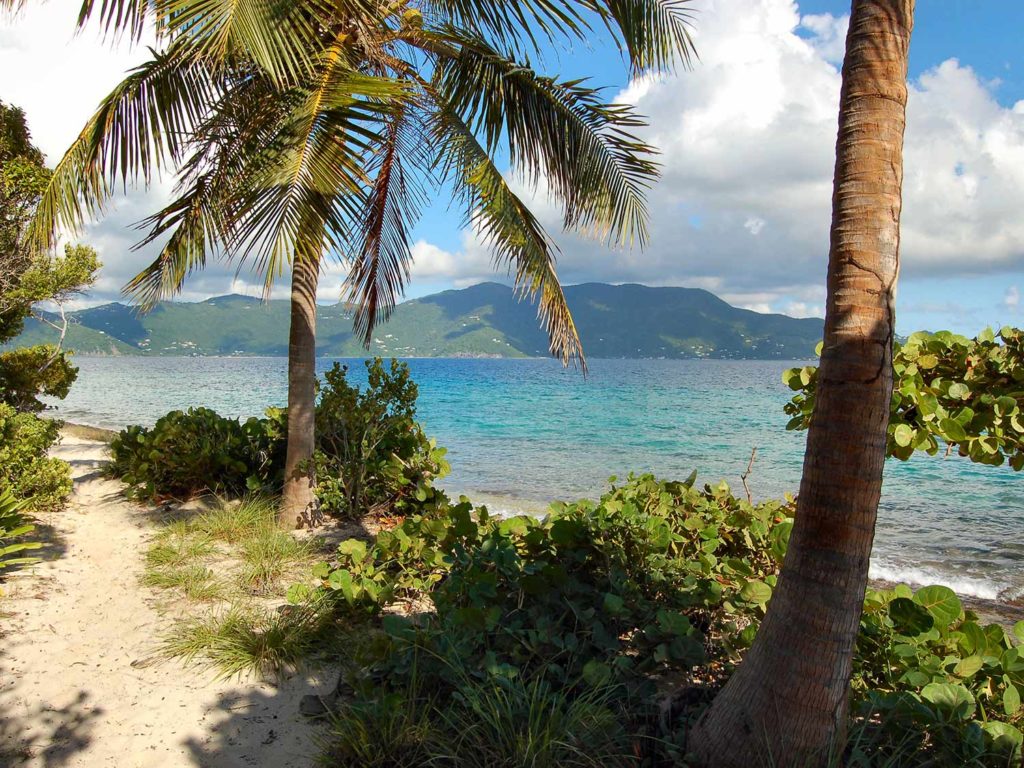
Due east of the island of Jost Van Dyke, this island with a palm tree forest and wide but steep white sand beach is a hotspot among boaters. In high season, its west coast sees many at anchor, with vacationers coming ashore to play football on the beach or simply relax on the shores.
But, even in high season, almost nobody walks around the bend to the south shore. Here, while listening to waves break on reefs, you can enjoy the escapism of utter solitude.
Little Jost Van Dyke: Best for a Cocktail away from the Crowds
Nobody receives mail on this island, but there is a tiny beach bar called the B Line. One of the quirks of this yellow-and-green shack is that the bartender flies the ‘OPEN’ flag when he’s tending bar, so passing yachties know whether or not to drop anchor. You can expect a full bar, open in early morning—just don’t ask for coffee or food. There’s also picnic tables and cornhole set up to encourage lingering.
Dead Chest Island: Best for Connecting with History
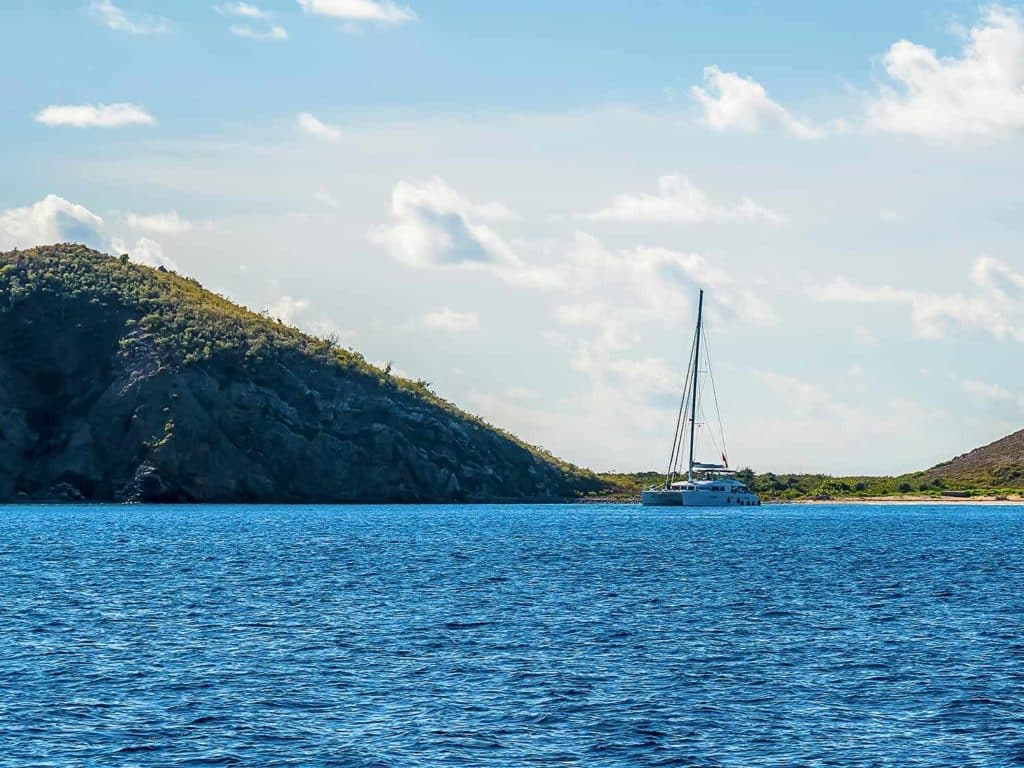
It’s not hard to see why pirates prized these islands and their topography, from the caves of Norman Island to the hidden lairs of The Baths of Virgin Gorda. So it’s no surprise that a few tales of pirate lore have survived, including the story of Blackbeard, aka Edward Thatch, allegedly abandoning 15 men on this island after he heard of their mutinous plans.
Today, a narrow but rocky beach remains on the northwest and southwest shores. One option would be to dinghy close in and anchor. The beach is serene, but the more rewarding option is to snorkel off this island on which so few ever tread.
Ginger Island: Best Quiet Beaches
Right now, Ginger Island is uninhabited, but that could very well soon change. The privately owned island is for sale—and allegedly it’s under contract. For now, this 250-acre island is nothing but shrubby chaparral and small tropical forests of tamarinds, loblolly and cedar trees. While you can explore the hilly island, there aren’t footpaths. You’re better off dinghying to the beaches to enjoy some solitude.
This island is also home to a handful of famous dive sites, including Alice in Wonderland, found along its south bay. The site extends from 40 to 70 feet, so stretches of these scenic coral gardens are accessible to snorkelers.
The Indians: Most Memorable Snorkeling
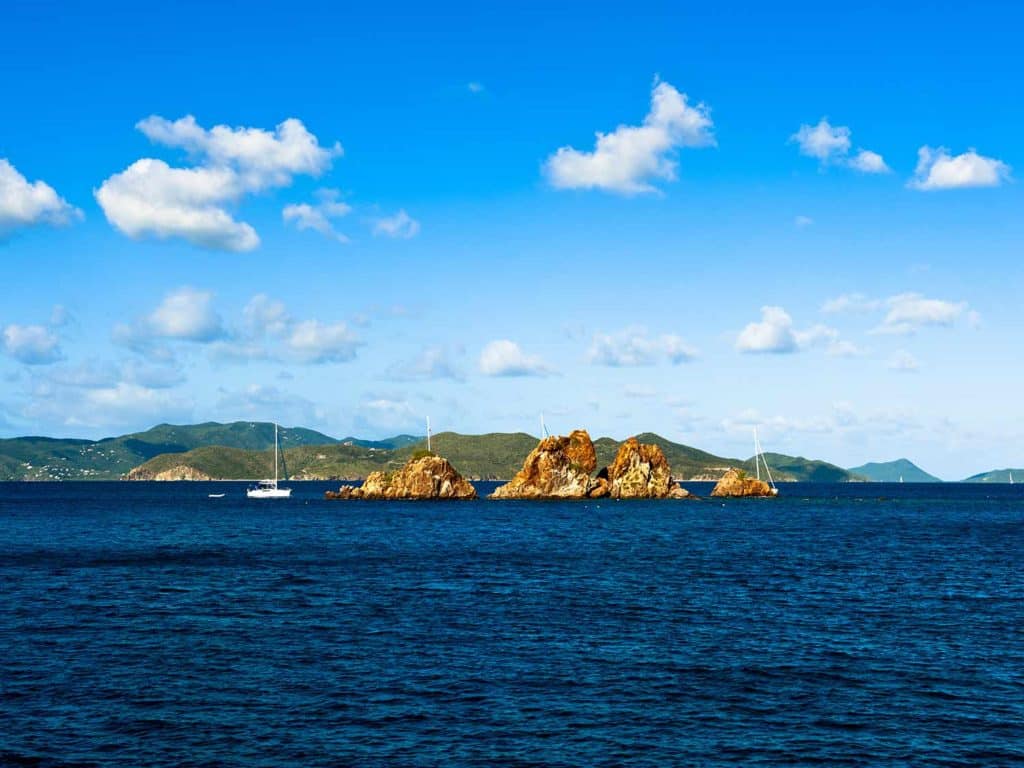
OK, so this sheer outcropping of four rock formations just north of Norman Island doesn’t have the most politically correct name, chosen for the site’s resemblance to a feather headdress. But it is a magical snorkel spot.
Stick to the west side of these pinnacles to swim among schools of blue tangs and sergeant majors, as well as reef fish, such as queen angels, parrotfish and trunkfish. If the spot isn’t crowded, you may also encounter a passing eagle ray.
George Dog: Best for Playing Castaway
When sailors first passed through these parts, they mistook the barking for dogs, but it was actually the call of Caribbean monk seals. The seals are no more, but the name stuck. Now, this boulder-and-white-sand isle isn’t visited much. Boaters who do show up have George Dog to themselves, including the white sand beach, the smooth boulders and the protected coves of gin-clear water.
Sandy Spit: Best for Enjoying a Cold One
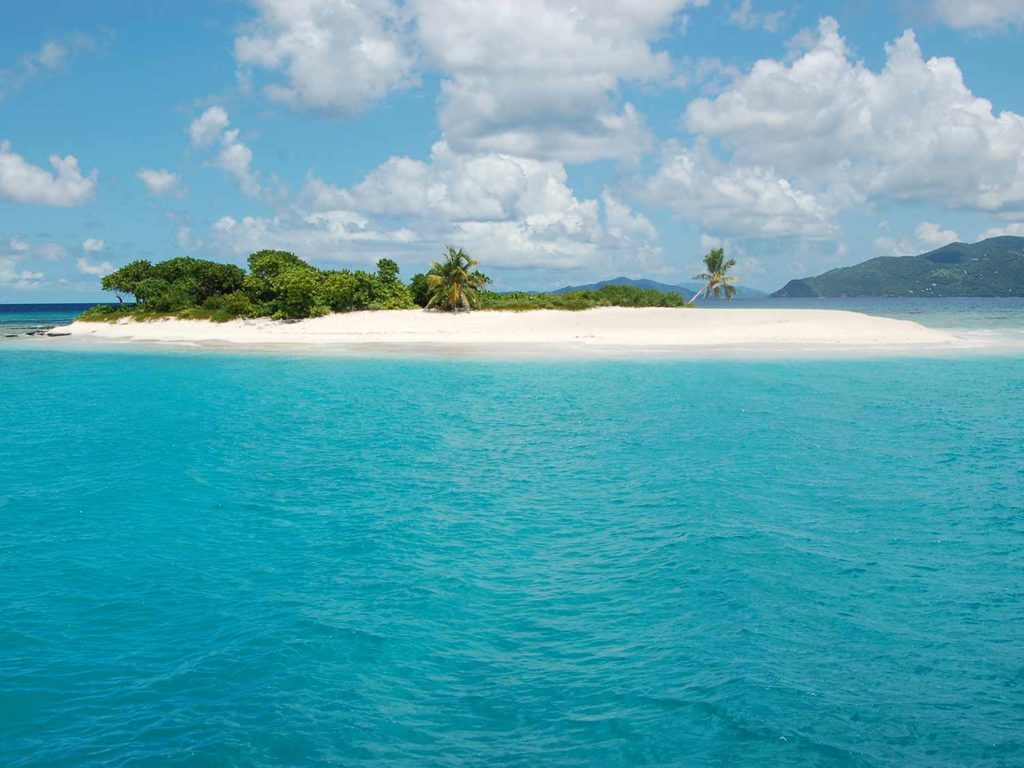
The 2017 hurricane season has changed the shape of this island, making it even smaller than it was when all the Corona commercials were filmed here, taking advantage of the utter escapism of a place that was all white sand and just a few palm trees—and only about as wide as you could throw a football.
The hurricanes stripped the spit of any greenery, but it’s still a choice spot for a picnic, game of football or just chillin’ in a beach chair enjoying, well, a Corona.

